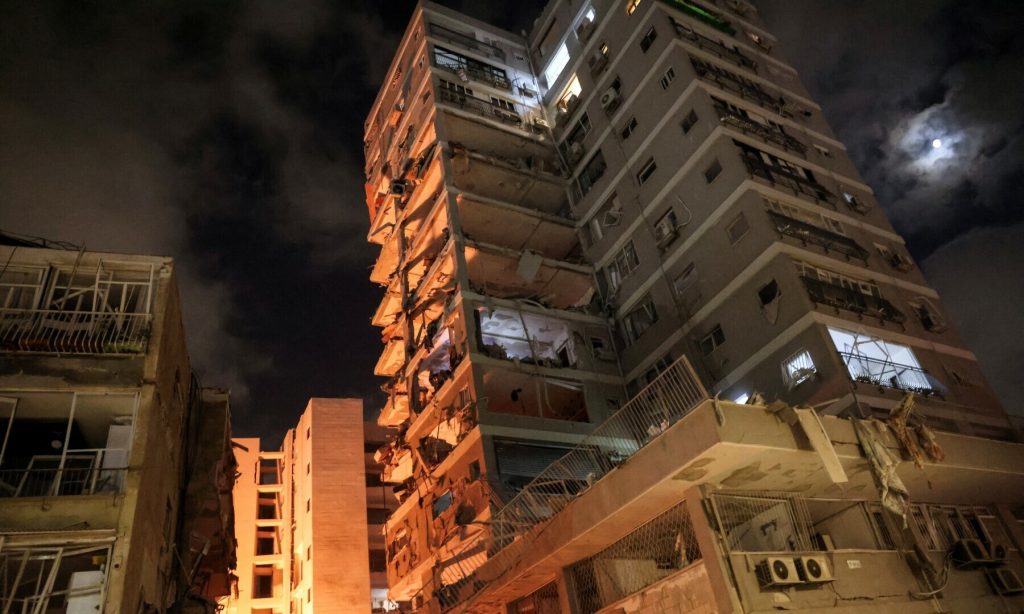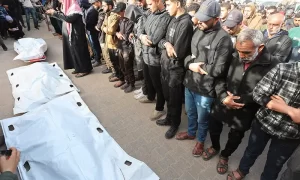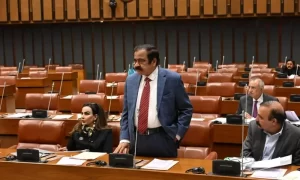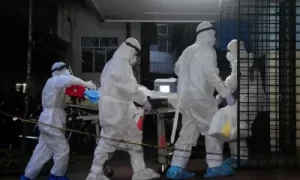
Israel and Iran launched fresh attacks on each other overnight into Sunday, stoking fears of a wider conflict after Israel expanded its surprise campaign against its main rival with a strike on the world’s biggest gas field.
Israel launched an air offensive against Iran on Friday, killing commanders and scientists and bombing nuclear sites in a stated bid to stop Tehran building an atomic weapon, which the latter has consistently denied, saying its uranium enrichment programme is for civilian purposes.
A day after Israel wiped out the top echelon of Iran’s military command, it hit Iran’s oil and gas industry for the first time. Iran then partially suspended gas production at the South Pars gas field, which it shares with Qatar.
Netanyahu claimed Israel’s strikes had set back Iran’s nuclear programme “possibly by years” and rejected international calls for restraint.
Tehran called off nuclear talks that Washington had said were the only way to halt Israel’s bombing, while Israeli Prime Minister Benjamin Netanyahu said the attacks were nothing compared with what Iran would see in the coming days.
The latest wave of Iranian attacks began shortly after 11pm on Saturday (1am PKT Sunday), when air raid sirens blared in Jerusalem and Haifa, sending around a million people into bomb shelters.
Around 2:30am local time (4:30am PKT), the Israeli military warned of another incoming missile barrage and urged residents to seek shelter.
Explosions echoed through Tel Aviv and Jerusalem as missiles streaked across the skies, as interceptor rockets were launched in response. The military lifted its shelter-in-place advisory nearly an hour after issuing the warning.
The ambulance service said at least seven people were killed overnight, including a 10-year-old boy and a woman in her 20s, and more than 140 were injured in multiple attacks.
Search and rescue workers combed through the rubble of residential buildings destroyed in multiple strikes, using flashlights and dogs to look for survivors.
Israeli media said at least 35 people were missing after a strike hit Bat Yam, a city south of Tel Aviv. A spokesperson for the emergency services said a missile hit an eight-storey building there and while many people were rescued, there were fatalities.
It was unclear how many buildings were hit overnight.
So far, at least nine people in Israel have been killed and over 300 others injured since Iran launched its retaliatory attacks on Friday.
In Iran, nearly 140 people have been killed since Friday, with 78 on the first day of Israel’s campaign, and scores more on the second, including 60 when a missile brought down a 14-storey apartment block in Tehran, where 29 of the dead were children.
The Shahran oil depot in Tehran was targeted in an Israeli attack, Iran said, but added the situation was under control.
A fire had erupted after an Israeli attack on an oil refinery near the capital while Israeli strikes also targeted Iran’s defence ministry building, causing minor damage, the semi-official Tasnim news agency said.
Iran’s Revolutionary Guards said Iranian missiles and drones targeted Israel’s energy infrastructure and facilities for fighter jet fuel production. The elite force warned Tehran’s attacks will be “heavier and more extensive” if Israel continues its hostilities.
US President Donald Trump had warned Iran of worse to come, but said it was not too late to halt the Israeli campaign if Tehran accepted a sharp downgrading of its nuclear programme.
A round of US-Iran nuclear talks that was due to be held in Oman on Sunday was cancelled, with Iranian Foreign Minister Abbas Araqchi saying the discussions could not take place while Iran was being subjected to Israel’s “barbarous” attacks.





